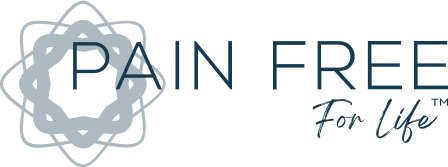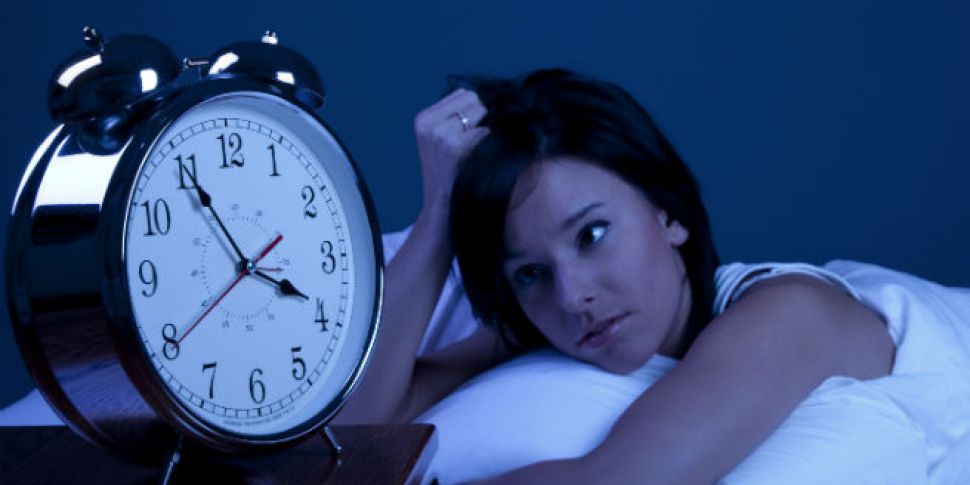
There’s nothing more comforting than climbing under the covers and drifting off to a peaceful sleep on a cold winter’s night. But for many of us, getting the rest we need to be healthy doesn’t come easy. If the hustle and bustle of the holiday season has your sleep out of whack, read on. We have an excellent (and delicious) solution.
Why Great Sleep is Essential for Healing
Don’t underestimate the power of sleep. Quality sleep is required for your body to rest and repair itself and for vital reorganization activities to happen in the brain—and that’s precisely why we’ve made it one of the pillars of the Hache Protocol for Pain Resolution ™
Why is sleep so good for health, healing, and overall wellness?
- Sleep is essential for physical health, as the body repairs and restores tissues and the immune system during the phases of deep sleep.
- Getting enough quality sleep is critical for healthy brain function and emotional wellbeing.
- Adequate sleep helps keep inflammation in check, which is necessary for addressing chronic pain.
Unfortunately, sleep deprivation has become a worldwide epidemic. A shocking 35% of adults report getting less than the seven recommended hours of sleep per night.
The thing is, if you don’t sleep well, you add fuel to the fire of chronic pain, mental health issues, and autoimmune disorders.
So, what can you do? Grab a bottle of sleeping pills and call it a night, right? Wrong!
Why aren’t Drugs the Answer to Better Sleep?
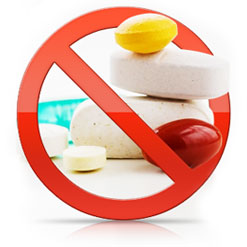
Sleeping pills can interfere with your brain’s natural sleep cycle, which means you may not experience the most reparative sleep when you take them. Let’s look at the main reasons why sleeping pills aren’t the answer to restful, healing sleep.
Sleep Walking—Sleeping pills are known to cause parasomnia conditions like sleepwalking. This condition will make it extremely difficult to reach REM sleep (where regeneration happens). Once you get off track in your sleep cycle, your chances of getting back to the all-important REM cycle diminish.
Grogginess—Ever wake up groggy and out of sorts after a sleeping pill? You’re not alone. Sleeping pills can make it hard to get up and start your day. Sounds counterintuitive, right?
Side Effects—Aside from sleep cycle problems, these pills can come with other unwanted side effects, like mental mood and behavioral changes, memory loss, thoughts of suicide, hallucinations, confusion, aggressive behavior, agitation, and anxiety, to name a few.
Addiction— One of the worst side effects of sleeping pills is dependency. After a while, you will eventually need to take more and more to fall asleep—and when you don’t take them or don’t take enough, it leads to restless nights.
We advocate for a safer, more natural approach to ensuring the healing sleep you need. Read on to learn why sleep teas are becoming a major worldwide health trend and why you should start using them right away if you have trouble getting the rest you need.
Why Herbal Teas are more Effective and Safer than Sleep Pills

Herbal teas are natural, drug-free, and non-habit forming, unlike pharmaceutical and over-the-counter sleep aids. Herbal sleep teas can also be used long term with no risk of dependence or disruptions to your natural sleep patterns.
9 Sleep Tea Ingredients to Promote Restorative Rest this Holiday Season
Don’t let the hustle and bustle of the holiday season disrupt your sleep patterns. These nine ingredients take center stage in the three can’t-miss sleep tea recipes we’ve included below.
- Valerian—Valerian has been used for eons to address problems like headaches, insomnia, and nervousness. Valerian tea is a popular natural sleep aid because it increases the neurotransmitter gamma-aminobutyric acid (GABA). GABA is known to promote sleepiness.
- Lavender— Lavender is often touted for its soothing aromatic scent. Drinking a cup of lavender-infused tea before bed is an easy and natural way to promote healing sleep into your nighttime routine as it promotes deep relaxation and settles nerves.
- Chamomile— Chamomile is commonly regarded as a mild tranquilizer due to an antioxidant called apigenin. Apigenin helps you sleep because it binds to receptors in your brain that are reported to decrease anxiety.
- Cardamom— Studies have shown that thiamine, or Vitamin B1, present in cardamom, can reduce stress levels resulting in more peaceful and restorative sleep. Thiamine also helps to enhance brain function—helping you remember the fantastic dreams you are sure to have if you sip a mug of cardamom tea.
- Peppermint—The menthol in peppermint relaxes muscles, relieving stress and anxiety, which will allow you to gain more restful sleep.
- Lemon Balm— Studies have shown lemon balm to be a great ally in reducing insomnia symptoms and sleep disorders during menopause when symptoms such as anxiety, restlessness, and hot flashes are very common. Lemon balm is also a great natural anti-inflammatory, so if aches and pains or menopause symptoms are keeping you up at night, lemon balm may be the answer you’ve been looking for.
- Catnip—Not just for cats anymore! The nepetalactone found in catnip is similar to the active compounds found in another popular sleep herb we previously mentioned: valerian. Catnip’s sedative effect can help ease the hardships of insomnia.
- Cinnamon— cinnamon helps you have a restful, uninterrupted night’s sleep by reducing blood sugar spikes and crashes that disrupt sleep. This is because cinnamon regulates blood sugar levels and improves blood circulation.
- Banana Peel—The muscle-relaxing qualities of magnesium and potassium make bananas an excellent sleep aid. Bananas are also known to have considerable levels of L-Tryptophan, an amino acid. L-Tryptophan is converted into 5-HTP in your body, which then produces serotonin and melatonin, two knock out sleep-inducing hormones.
Because everyone is different, try one or two of these ingredients at first and see how your sleep improves from there. It’s all about dialing into what is right for your constitution.
Our 3 Favorite Herbal Sleep Tea Recipes
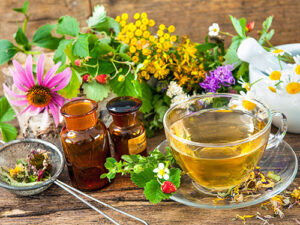
If you are looking for a natural answer to a good night’s rest, try one of our favorite sleep tea recipes tonight.
Drug-Free Knockout Tea:
This herb tea for sleep is taking the internet by storm. See what all the fuss is about and try it for yourself.
Materials needed:
- A teapot
- Your favorite teacup or mug
- A reusable tea infuser
Ingredients:
- 1 teabag or 1 teaspoon chamomile tea
- ½ tsp cardamom pods, crushed
- ¼ tsp lavender buds
- Filtered or spring water
Directions: Boil water, then add the dried herb mixture to a tea infuser. If you don’t have a tea infuser, you can also strain the tea through a fine-mesh sieve before drinking. Let it steep for 4-5 minutes, then enjoy.
The Hache Family Holiday Sleep Tea Blend
Our family loves enjoying this calming and aromatic holiday sleep tea as a nightcap when celebrating the holidays together. Try incorporating this recipe into your family’s traditions for peaceful slumber and dreams of sugarplums.
Note: This recipe is given in parts, so you can make a big batch and pass it out as gifts to your loved ones. To make just one cup for yourself, use teaspoons as your measurement.
Materials needed:
- A teapot
- Your favorite teacup or mug
- A reusable tea infuser
- Small mason jars (for larger batches or gifting)
Ingredients:
- 3-parts chamomile
- 2-parts lemon balm
- 2-parts peppermint
- 1-part lavender buds
- 1-part catnip
- ¼-part valerian root
- ¼-part dried orange peel
- Filtered or spring water
Directions: Boil water, then add 2-3 grams of the dried herb mixture to a tea infuser. Let it steep for 4-5 minutes and enjoy.
Easy Organic Cinnamon Banana Sleepy Tea Recipe
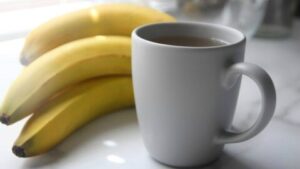
Cinnamon is a classic holiday ingredient that releases a warm and cozy aroma. Try this non-traditional tea recipe to get all the sleep-inducing benefits of bananas: magnesium, potassium, and L-Tryptophan.
Materials needed:
- Your favorite teacup or mug
- A small saucepan
- A strainer or sieve
Ingredients:
- 1 small organic banana
- 3 cups of filtered or spring water
- 1 sprinkle of cinnamon (or a cinnamon stick)
- a splash of milk (dairy milk, oat milk, almond milk)
Instructions:
- Rinse the banana in the peel well in warm water. Use organic bananas only due to the high use of pesticides in non-organic bananas.
- Cut off the ends of the banana using a knife.
- Place the entire banana—peel and all—into a small saucepan. For stronger cinnamon flavor, add a cinnamon stick now. Pour filtered or spring water on top. Unfiltered water can contain minerals or chemicals that will alter your tea’s flavor and potentially produce adverse side effects.
- Bring your pot of water to a rapid boil.
- Remove tea from the heat and let the banana steep in the boiling water for 15 minutes.
- Strain the banana, add the cinnamon (if you didn’t earlier) and milk, and a splash of agave or honey if desired.
Get the Sleep You Body Needs Tonight
Do you have questions about incorporating natural sleeping aids into your routine or how proper sleep relates to the Hache Protocol for Pain Resolution™?
Book a Complimentary Consultation today, and our staff will help guide you in the right direction.
